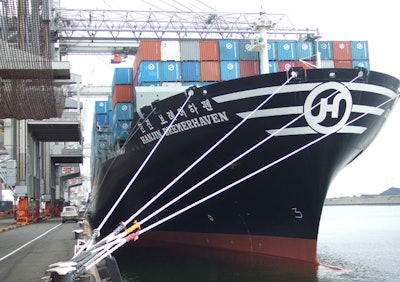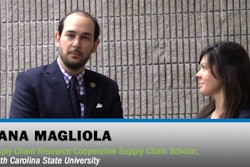
This month’s Ocean Carriers & Ports sector report looks at the prospect of early contract negotiations between the International Longshore and Warehouse Union (ILWU) and Pacific Maritime Association (PMA), which is expected to happen sometime this fall.
It’s an understatement to say that importers and exporters of temperature-controlled food products are relieved to hear that the two sides are at least making an effort to avert the West Coast ports slowdown that occurred in 2014-15.
The months-long slowdown that started brewing two years ago slammed reefer shippers especially hard. Containers filled with fruit, nuts, meat and other perishable food sat idle, then spoiled, while overseas buyers turned to other sources for these and other commodities.
Agriculture is big business for many companies and economies. Growers in the state of Washington lost millions of dollars during the slowdown, with apple growers alone estimated to have lost nearly $100 million. The Washington Council on International Trade said in-state businesses lost roughly $769.5 million.
Relationships between growers/shippers were also bruised, some maybe permanently.
I wrote the sector report in mid-August. Two weeks later came the announcement of Hanjin’s bankruptcy.
Ports are turning away Hanjin vessels and terminals don’t want to work them for fear of not receiving payment. There is still a lot of holiday merchandise en route from Asia to the U.S. and retailers are naturally worried about the status of their cargo.
On Aug. 31, South Korea’s maritime ministry said the carrier’s problems would impact cargo exports for two to three months, with about 540,000 TEUs already loaded on Hanjin vessels and facing delays. Rival carrier Hyundai Merchant Marine is stepping in to help by deploying 13 vessels on two routes served exclusively by Hanjin and the South Korean government is expected to solicit help from other global carriers.
The impact on big box retailers, especially with the holiday season coming up, is getting coverage in mainstream media; the plight of reefer shippers, not so much.
I don’t know the volume of reefer cargo that is caught up in this latest supply chain disruption. The point is, no matter how seemingly small, the impact will be sizeable. Cargo diversions, even if do-able, aren’t much help for time- and temp-sensitive food products.
I’m truly hoping that talks between the ILWU and PMA yield some results. Reefer shippers could really use a break right now.
Enjoy the read.




















